We recently sat down with the author of the latest Hail Caesar supplement, military historian Peter van Dop, to discuss his interest in the period, what’s in the book, and his approach to writing scenarios.

Peter: It is not every day you get to be asked by the leading wargames manufacturer to write a book about a man that intrigued millions of people for thousands of years. Called by some a brilliant leader of men and a great statesman, by others a cruel ruler and ruthless oppressor of his perceived enemies. A couple of years ago I was at the site of his assassination in Rome and people are still putting flowers there to commemorate him. That man, of course, is Gaius Julius Caesar, the man irrevocably connected to the Gallic Wars as he wrote the book about it – heavily featuring himself as the hero of the story, of course.
My first introduction, and many more with me, to his character was in a comic book called Asterix. A small village in Gaul kept resisting the onslaught of the Roman Republic and its armies led by Gaius Julius in the year 50. Unfortunately, Caesar makes no mention of Asterix and his village in his literary work, De Bello Gallico (The Gallic Wars). It was not until my early teens I discovered wargaming and in my early twenties I purchased my first wargame rules, in Dutch! I painted up my first plastic men and away I went. I discovered other wargames, I dipped into fantasy with Warhammer, metal armies were bought and sold, and the hobby kept growing for me. Not only in gaming, but also intellectually. I decided to study history in 2010 and graduated as a Master of Military History in 2018, at 49 years of age. I now write and play wargames in corporate settings as BelloLudi. After all, wargaming entertains, for it stirs the imagination. It is a learning experience, for it triggers the intellect. And it engages, for it stimulates intuition.
A selection of my own collection of miniatures can be seen in the slider gallery below.
What can we expect to find in the book?
This supplement follows the narrative as Julius Caesar outlined it. It not only provides players with an account of the subjects that Caesar thought worthy of mention, but no fewer than 44 scenarios to play games based on that narrative. These include a wealth of different types of encounters – from foraging skirmishes to full-sized battles. I have also included an account of the events that took place in the Roman senate during Caesar’s campaigns, to provide some insight into the political quagmire that Caesar found himself in, beyond his military obstacles.
What makes Caesar’s Gallic Wars a particularly fitting subject for a Hail Caesar supplement?
Apart from the obvious answer that the game is named after the man, Caesar’s writings in De Bello Gallico go beyond the battles, providing a biased, but nevertheless informative, overview of events leading up to each battle as well as their aftermaths. In playing through the scenarios, and understanding them contextually, your tabletop battles become part of a much larger story – history itself!
How did you approach writing scenarios for Hail Caesar?
Writing a scenario is an interesting exercise in itself; my design ethos is that, no matter the odds, each side must have a chance to secure victory. As anyone knows, battles are seldom evenly matched so the challenge was to design victory objectives for the armies that historically lost the actual confrontations. Could they have realistically won that battle, or was there something else at stake? In his writings, Caesar was notoriously short in the discussion of his battles, typically being as succinct as “hundreds of thousands of Gauls attacked but we defeated them soundly”. Nevertheless, he did provide clues for us to work with, such as naming the Gallic tribes, the battlefield’s terrain and sometimes the preparations he made prior to battle. These details were usually enough to create an interesting Hail Caesar scenario.
Did you have any notable experiences whilst playtesting the scenarios?
The way in which Caesar writes presents all battles as almost forgone conclusions. This is something we experienced during our initial playtesting. It was all too easy for the Romans to take victory, and that doesn’t make for a very interesting wargame. I therefore made adjustments to create balanced scenarios that players of both sides would be able to better enjoy. We had a host of volunteers playtesting each of the scenarios, and all their comments were very useful with many incorporated into the final book.
Is there anything in the book that you’re particularly proud of or would like to highlight specifically?
Although Caesar’s Gallic Wars is not an academic work, I do feel that I have added to the subject of military history by providing orders of battle for the many clashes that occurred during the Gallic Wars. This is, of course, my own interpretation of Caesar’s De Bello Gallico, which is a highly political text and thus rife with bias. Players should feel free to adapt the scenarios in the supplement as they see fit – by adding or subtracting units or special rules. After all, this supplement is as much about having fun with wargames as it is about history. Enjoy the book, the scenarios and most of all the company of like-minded hobbyists rolling dice as you venture into Gaul and beyond.
Order Your Copy Today
Caesar’s Gallic Wars is now available to pre-order. When purchasing directly from Warlord Games, you’ll get a free special miniature, ‘Defend the Eagle!’. This finely detailed miniature depicts the famous instance when a Roman aquilifer from the Tenth Legion took matters into his own hands as his comrades faltered in leaving their boats to land on the shores of Britain in the face of strong British opposition. He is reported to have shouted “Leap down, soldiers, unless you wish to betray your eagle to the enemy; it shall be told that I at any rate did my duty to my country and my general”, and duly leapt overboard, wading towards the enemy with his Eagle standard in hand. Not wishing to be disgraced by losing their priceless Eagle standard, his comrades followed his example and jumped from their ships to close with the enemy.
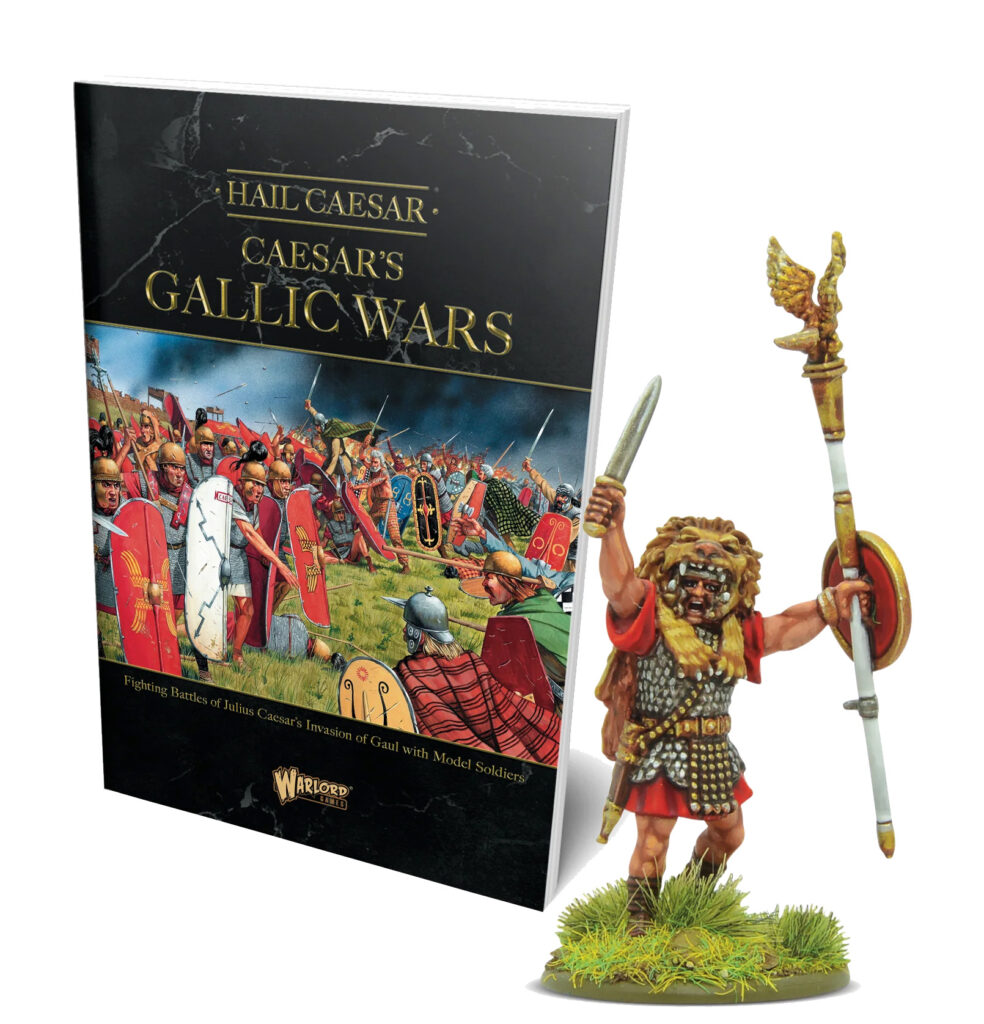
Getting Started with Caesar’s Gallic Wars
The new Caesar’s Gallic Wars starter set gives you two starter forces: the barbaric Gauls and the legions of the late Roman Republic – a fantastic start to your campaign to conquer all comers and write your name in the annals of history! In addition to the fantastic models it contains everything you need to play the game (dice, counters etc), and a Gallic Wars introductory guide which not only provides context and history for the battles concerned, but guides you through the steps of collecting, building and gaming a Hail Caesar army. Also included is an A5-sized Gamer’s Edition of the rulebook, conveniently stripped back to concentrate purely on the game mechanics, which is perfect for quickly referencing rules in the throes of battle. It makes a fine companion for the main rulebook.
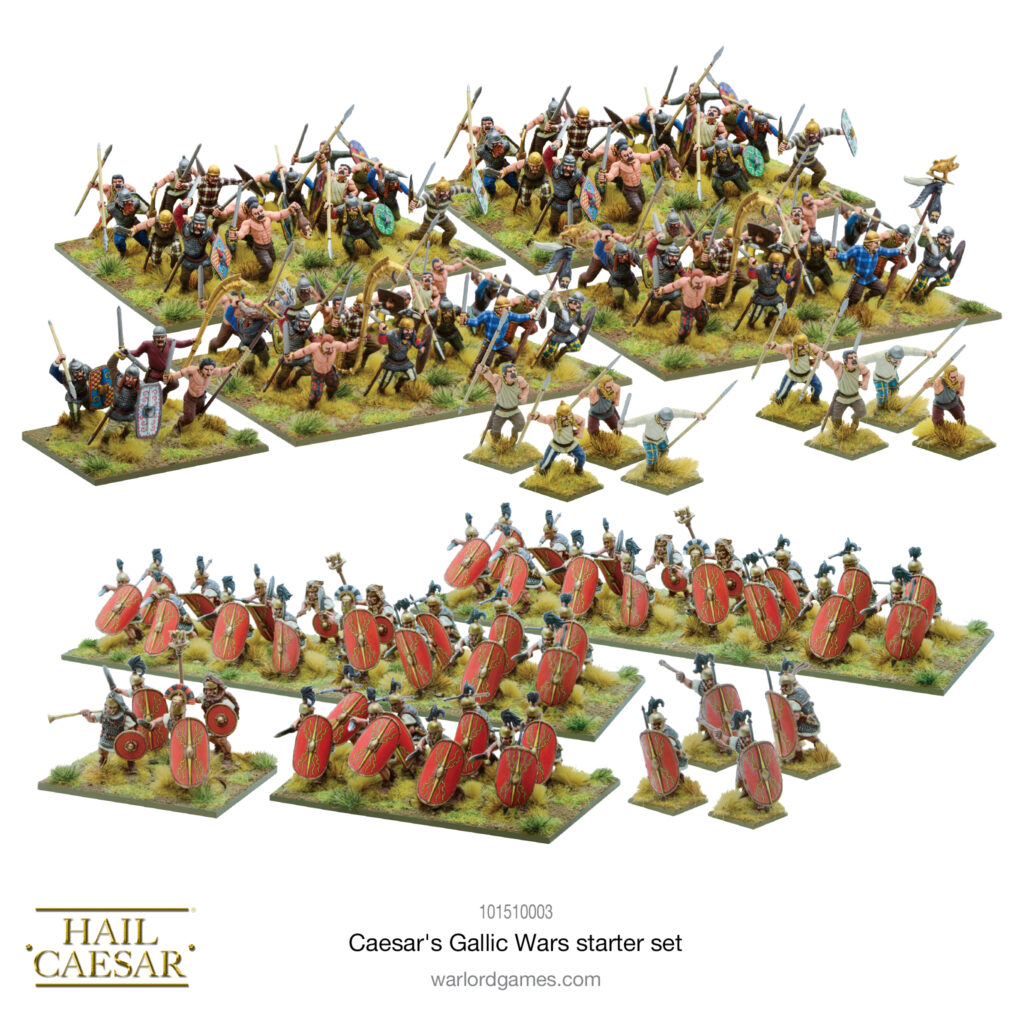
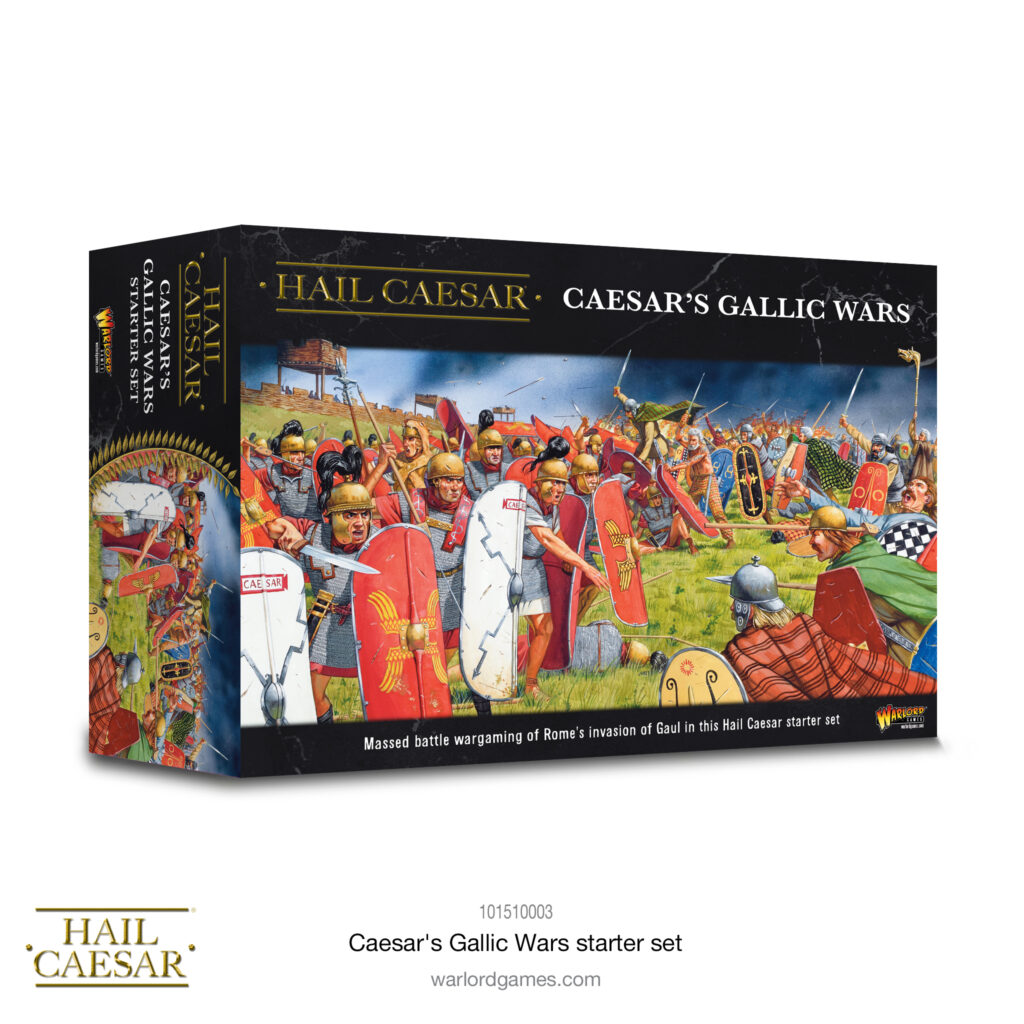
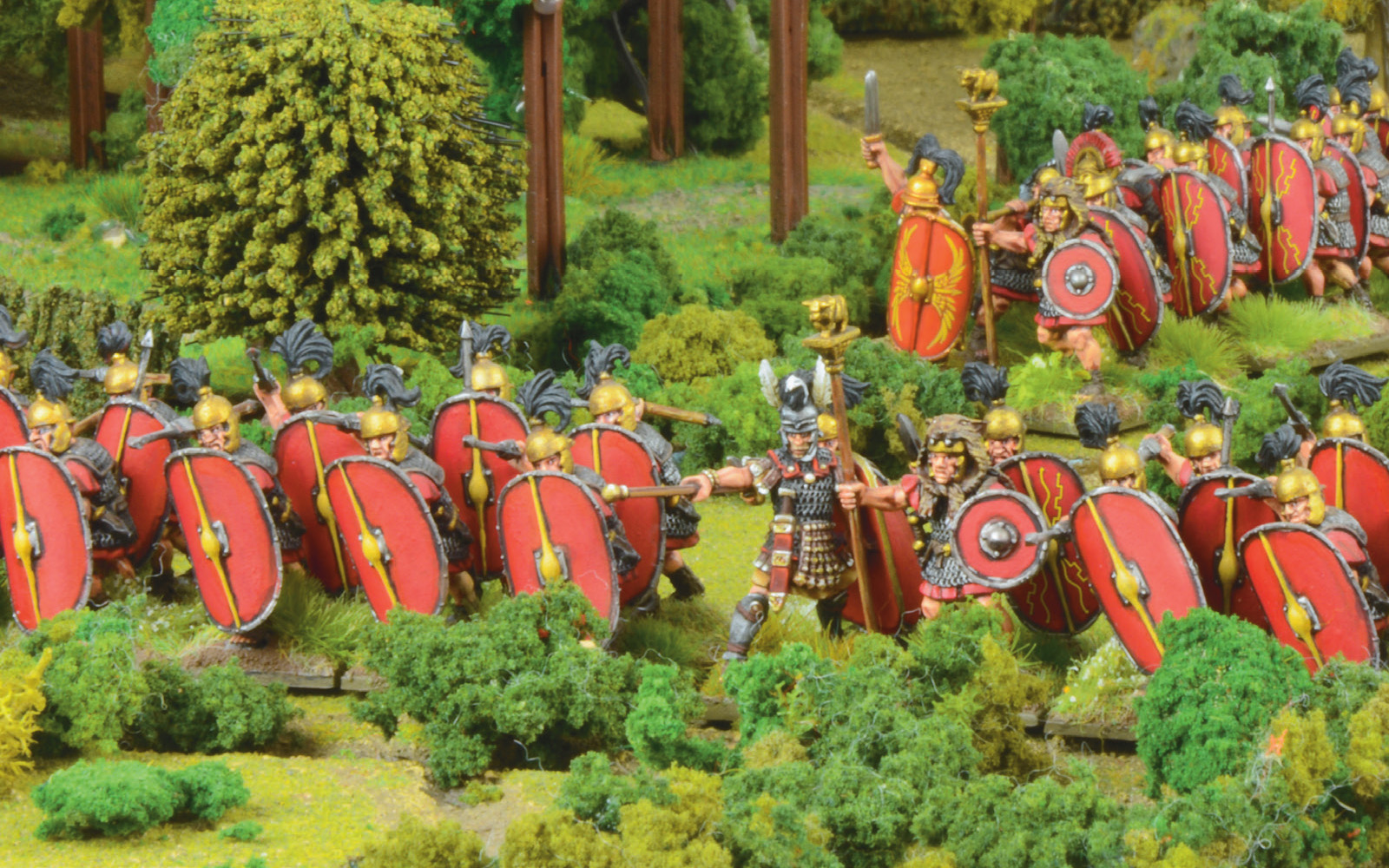
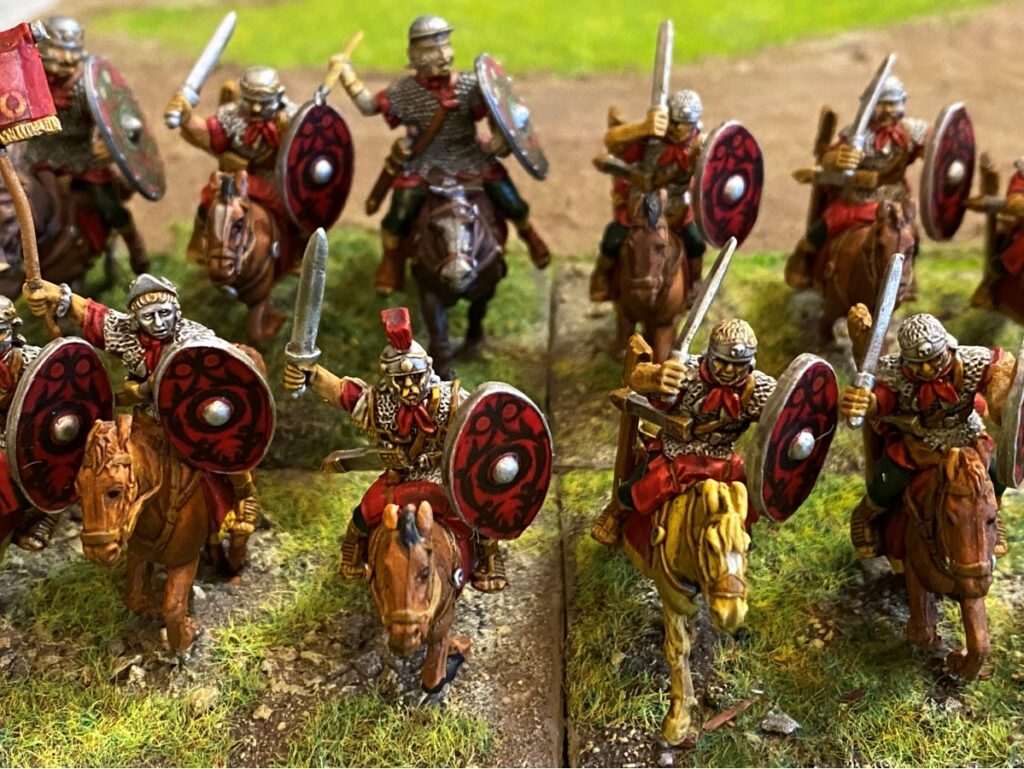
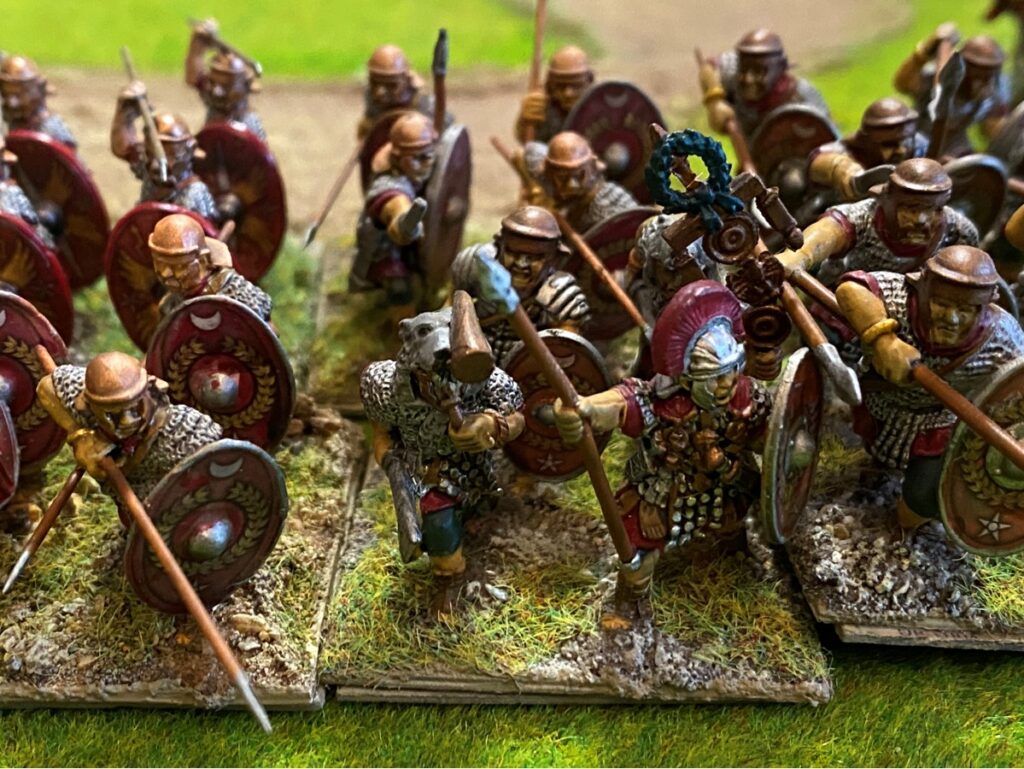
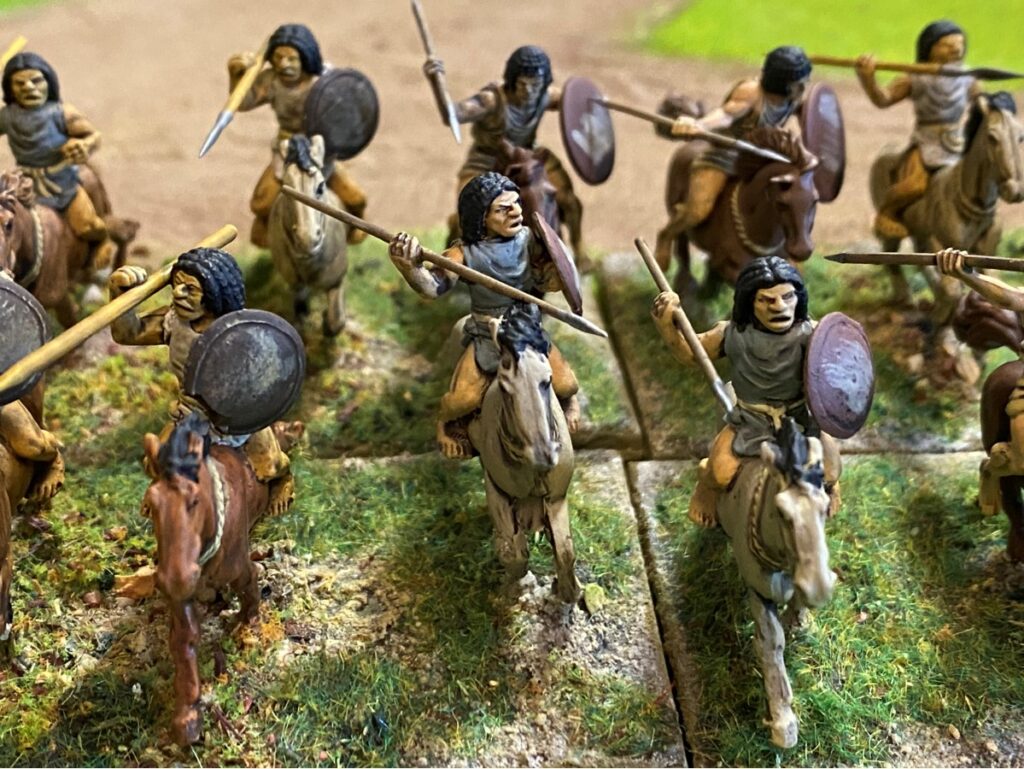
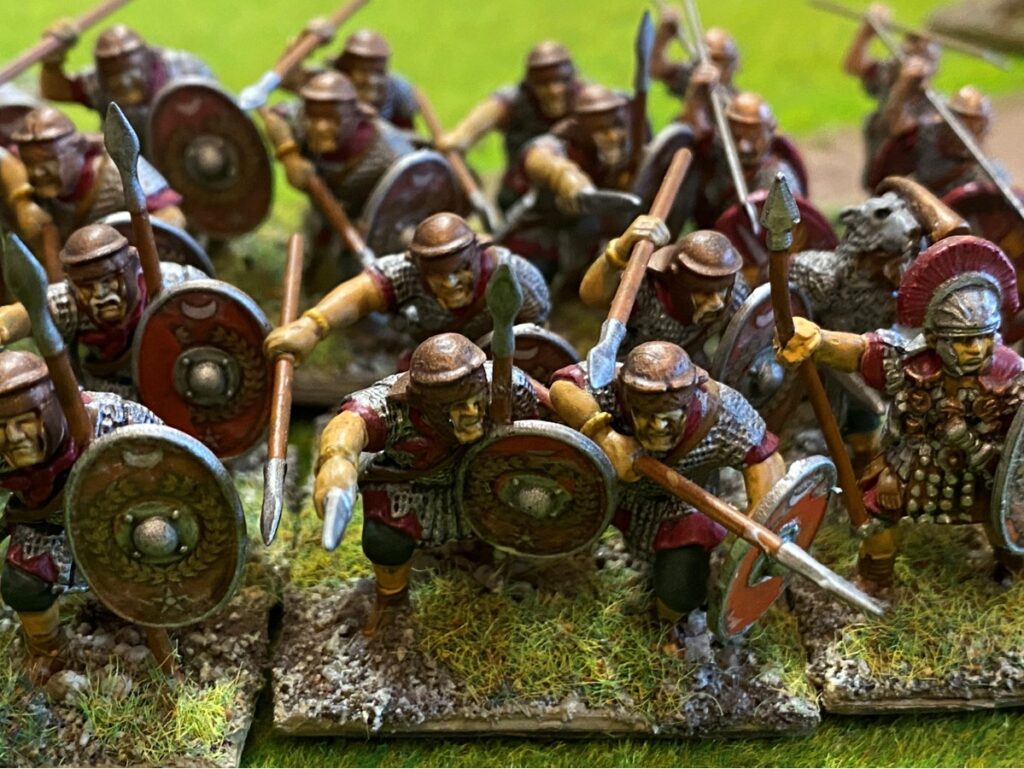
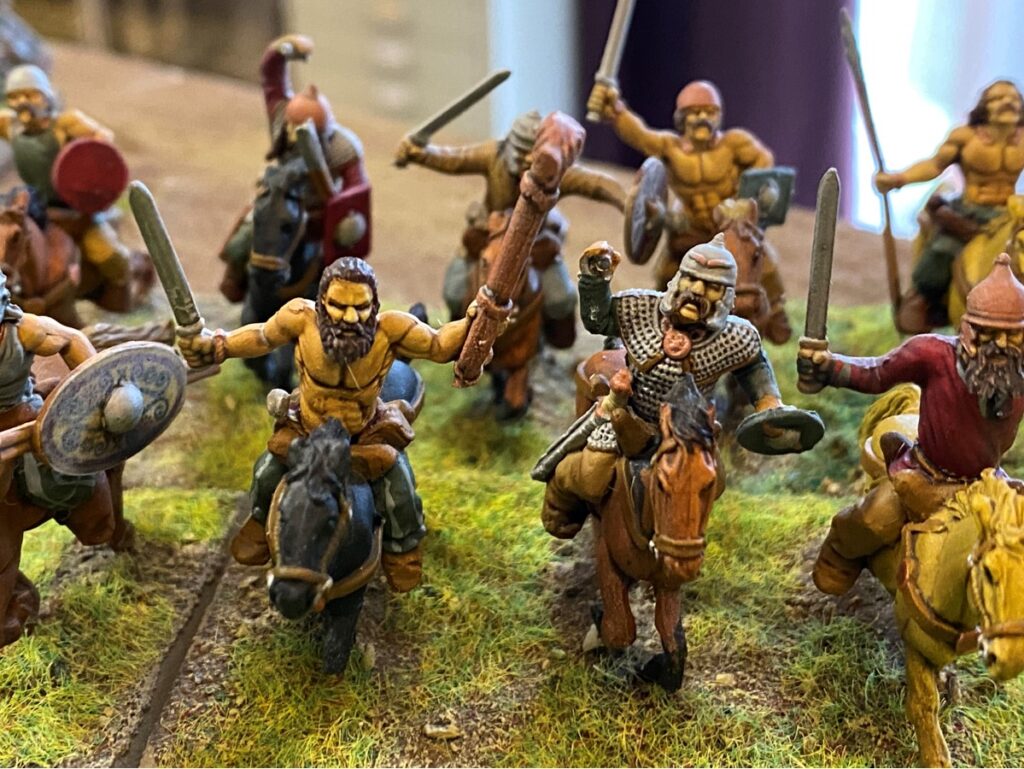
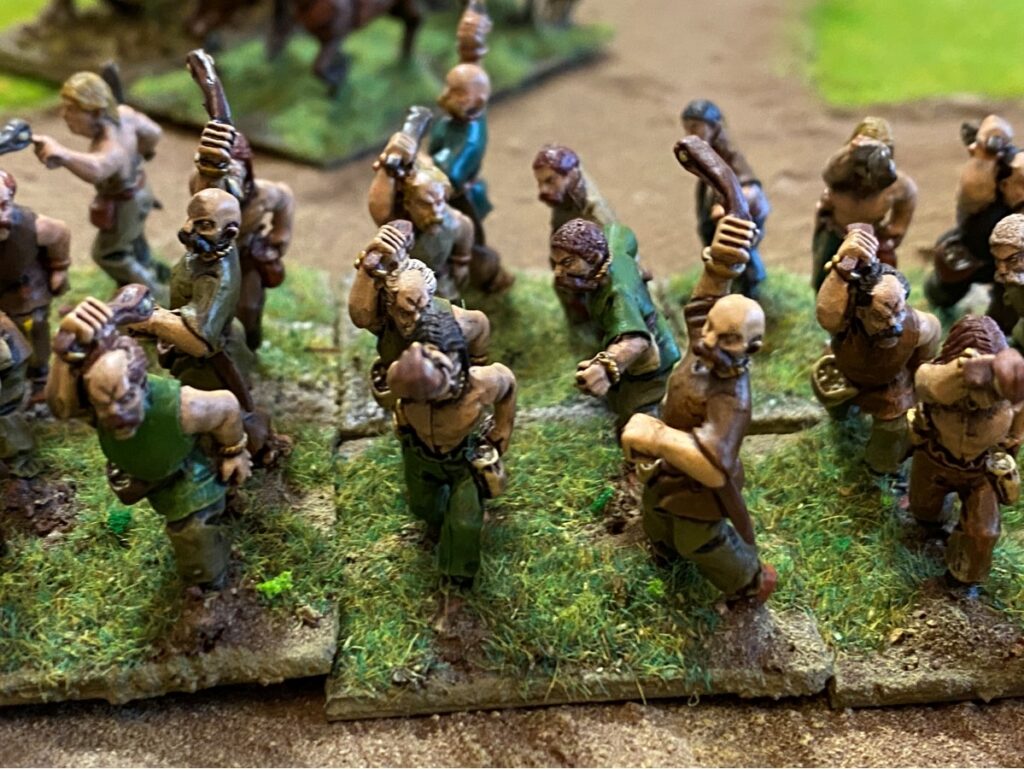
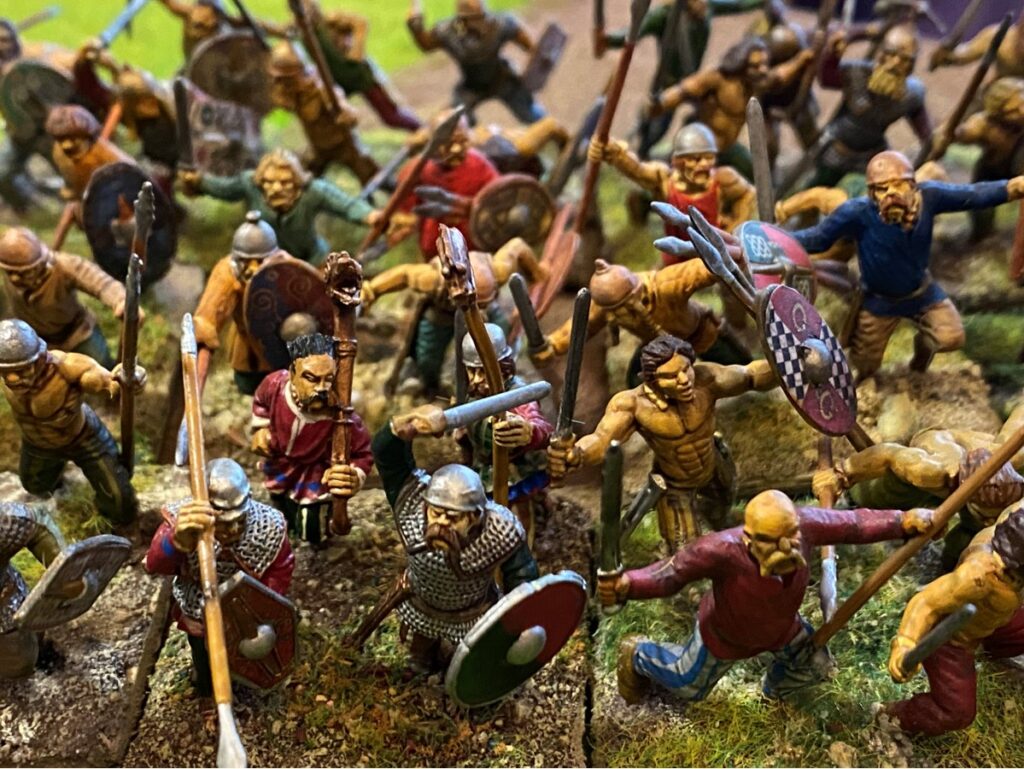
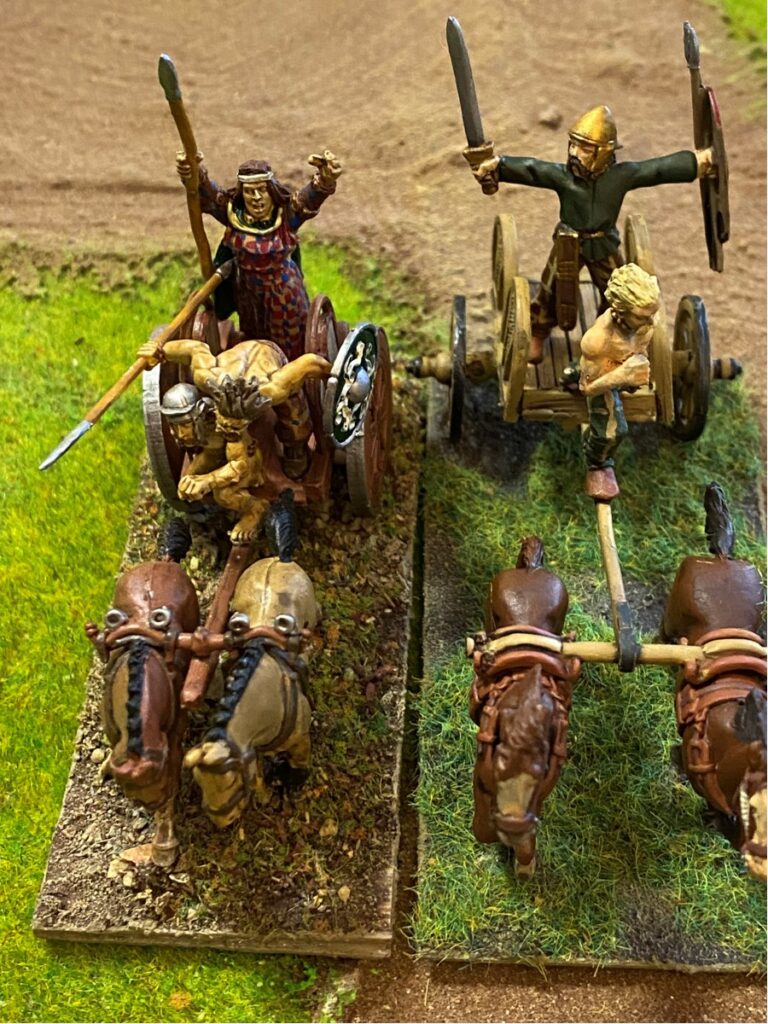
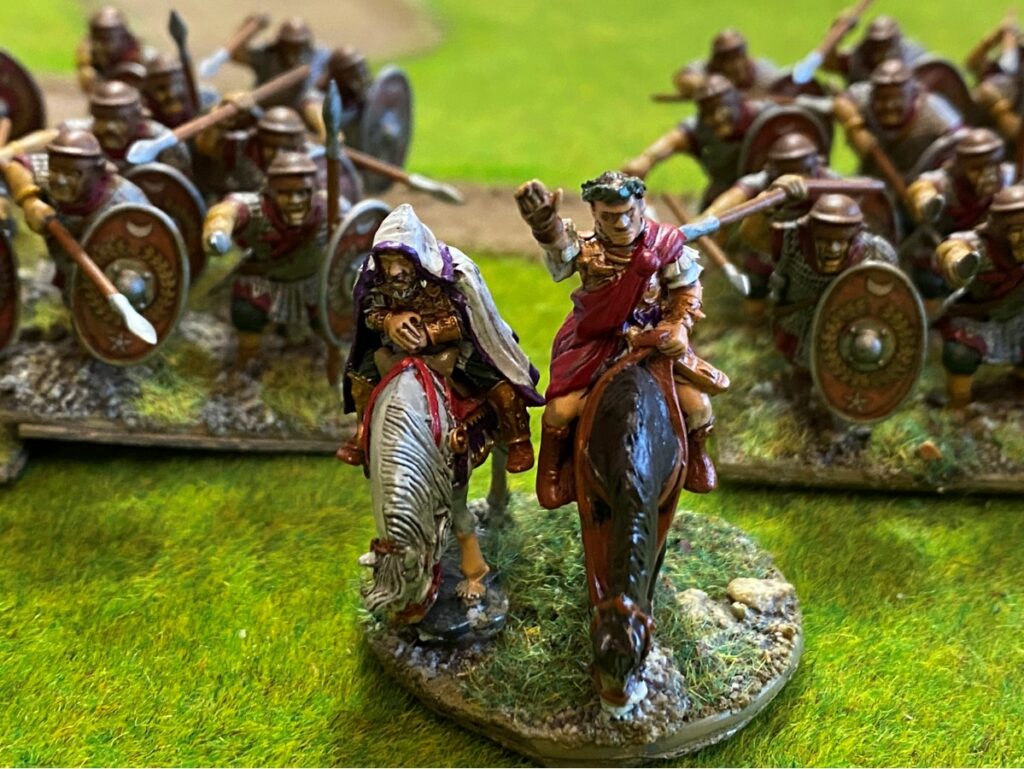
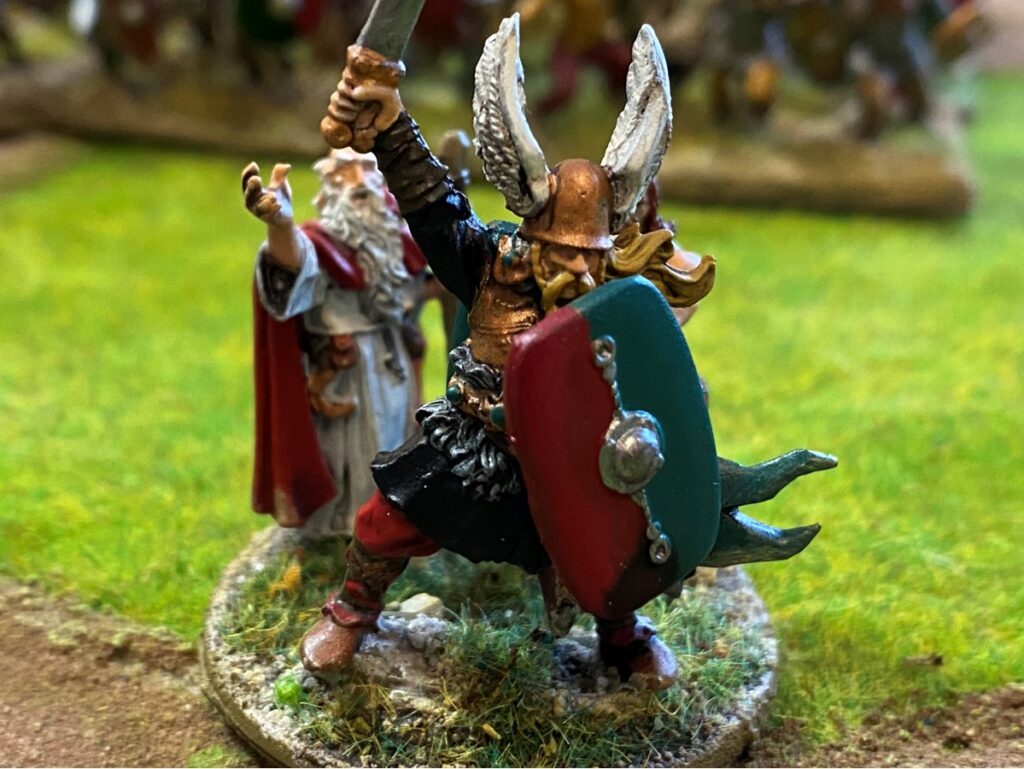
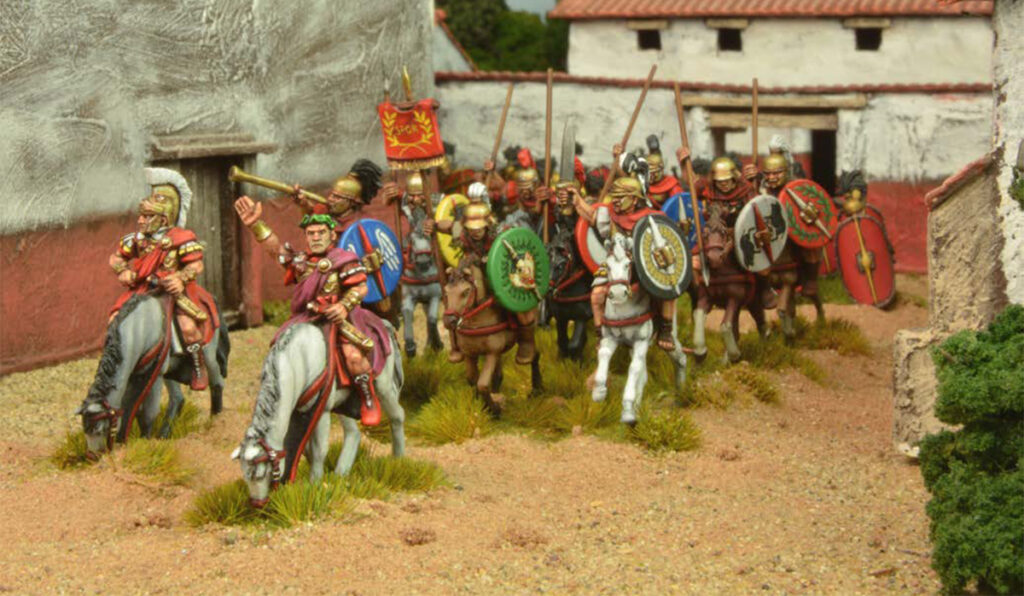
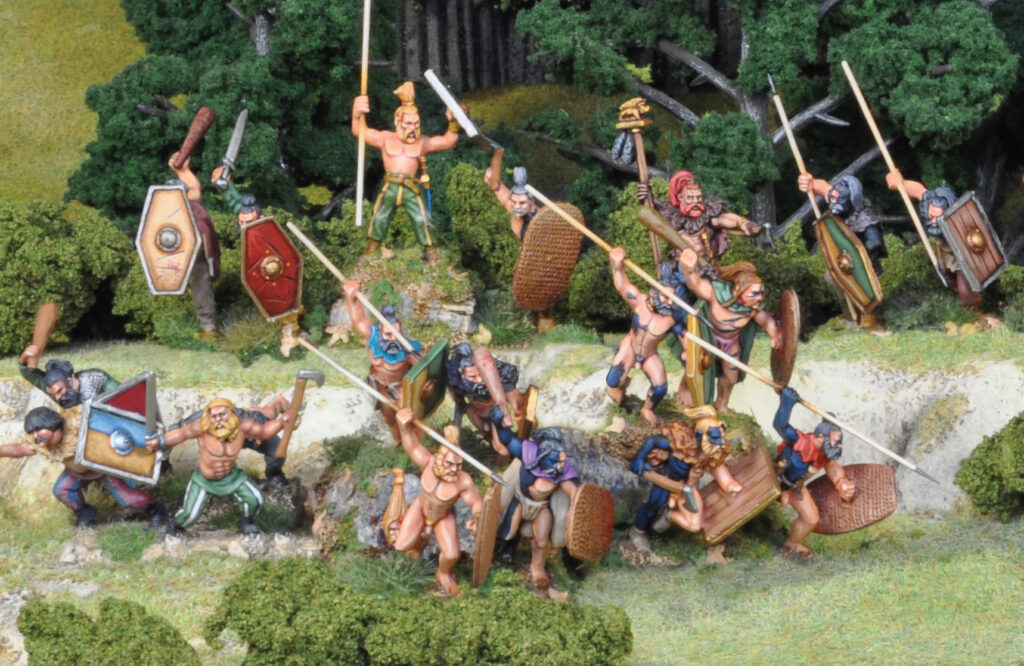
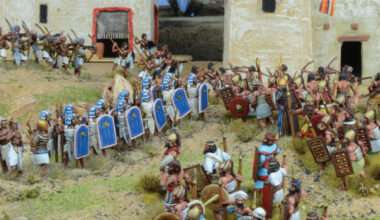
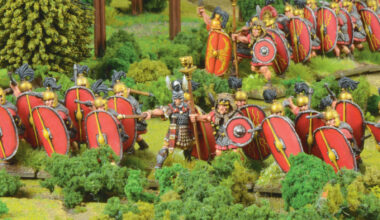
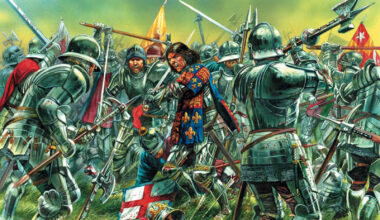
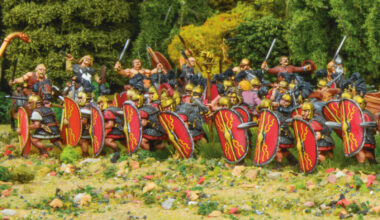
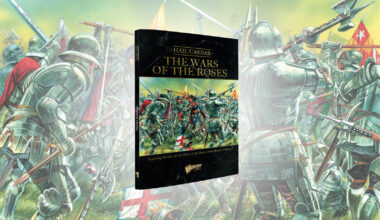
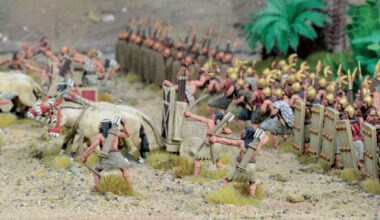
2 comments
Great article! Nice that the historical side informed the supplement this much. (Currently re-evaluating what I am doing, it is also a good example in Peter going into studying History round about the same age.)
Editor’s note @Dan for a typo: “Enjoy the book, the sceanrios and most”
Cheers
Thanks Jeroen – amended!
Comments are closed.